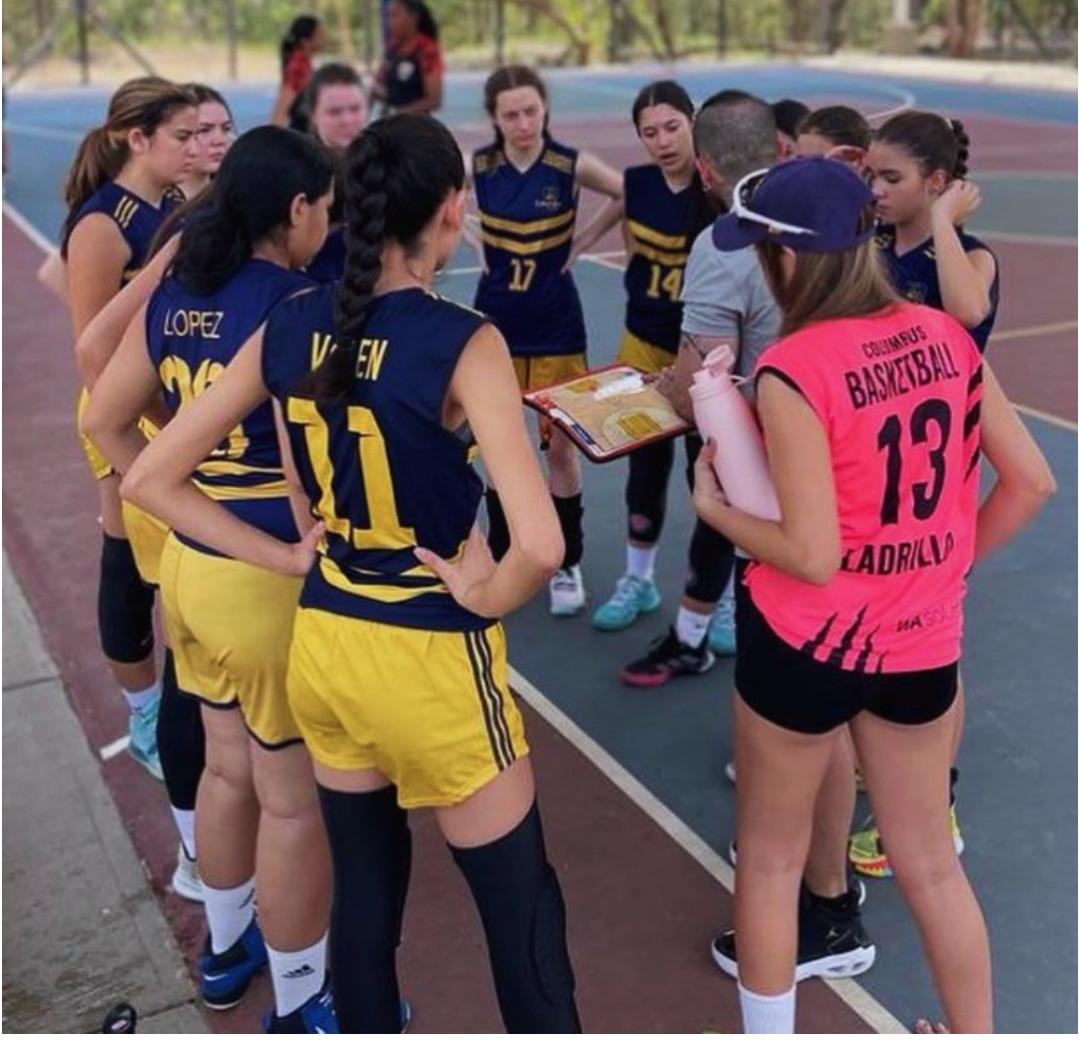TCS has a strong reputation for its high-performing student athletes, who have excelled in representing the school’s athletic values. Most people don’t notice is how these young and successful athletes are still students, who struggle to maintain a balanced lifestyle, have a high GPA, and care about their physical and mental health.
Ninth-grader Sara Galeano and Senior Ambar Alvarez are a part of the TCS basketball team. Galeano plays in three teams, including the TCS High School team, which Alvarez has led as the captain for the last two years. The difference between these two athletes is that Galeano lives a sport-driven life, whereas Alvarez’s priority has shifted to being a reliable personera. Even if they have a different center, they both have to deal with pressure from parents and coaches, academic workload, and injuries, and constantly fight with their mental health. Due to their age and their schedule differences, both athletes must overcome challenges in their way.Since mental health is a taboo topic that is just rising, a lot of the younger athletes avoid asking for help when it comes to their mental health to avoid being judged or belittled. Many high-performance athletes deal with immense pressure from coaches, parents, or headhunters, which is a heavy weight to carry and has a toll on their mental health. Some of these athletes avoid any sort of pressure at all cost, while others allow it to consume them, others fight it restlessly, while others enjoy it and embrace it.
“I had to ask for help and learn to work on my mental strength, my calmness, and handling my emotions. And now I love pressure. When my coaches demand more from me on the field, I know it is because they believe in my potential, and so should I. So I believe I play better under pressure,” Sara Galeano, ninth-grader, said.
Since mental health is now openly spoken about, many young athletes feel obliged to ask for help. Some may think it is pathetic or weak and others believe it is necessary. Either way, the mental capacity of an athlete to handle emotions and deal with pressure is one of the most challenging aspects of sports and one of the main reasons young athletes struggle to succeed.
“You need a lot of mental strength to overcome the challenges with studying while practicing a sport, and to separate the academic world from your athletic life. I can’t be stressed about all my meetings and homework in a game or while training because I won’t be able to perform well. I had to learn to separate one life from the other,” Senior, Ambar Alvarez, said.
Unfortunately, some young athletes seek help but do not have the fortune of finding the answers they need. Athletes learn from their coaches or parents to work vigorously to achieve their goals, to work harder every day, and to leave everything on the field. Some mentors seem not to notice how athletes may be mentally strong and manage their minds, but they are oblivious as to how while training, rehearsing drills, or playing a game, they are exposed to injury.
“The injuries I’ve had, forced me to prioritize both my physical and mental health. It had become a constant battle in my head, my body was just asking me to stop, it was asking me to rest and take care of it, but I felt bad because I wasn’t training,” Alvarez said.
Truly, Alvarez is not the only high-performance athlete that feels that way. It is not unusual for athletes to feel that they have to give up on everything, including their health and personal life, to achieve their goals. Although giving up on everything can trigger a mental health issue or be a setback for some athletes, others use it as a motivation to achieve their goals, to ensure that everything is not in vain.
“I am not going to lie, sometimes it is hard knowing that I am socially isolated. It is hard to know that my friends are elsewhere enjoying their life, but I believe I find my happiness in training, in learning new skills, in sweating and giving it my all,” Galeano said.



